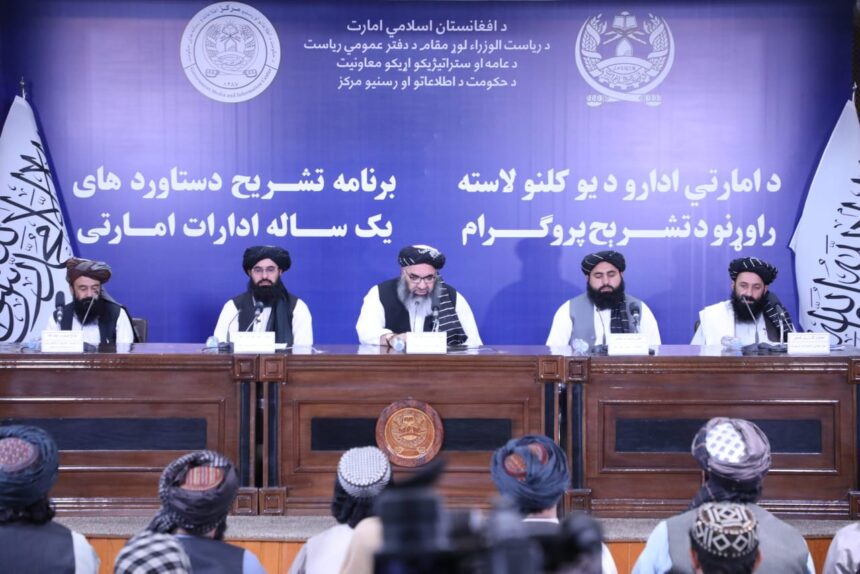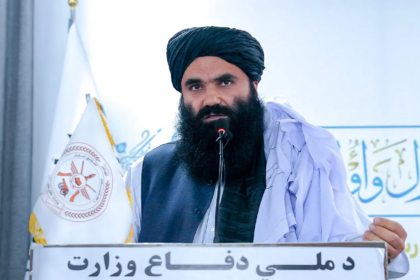RASC News Agency: Officials from the Taliban’s so-called Ministry of Borders, Ethnicities, and Tribes have made unsubstantiated claims that ethnic disputes in Afghanistan have dramatically decreased since their return to power, asserting that so-called “national unity” has been achieved. During a staged accountability session on Sunday, September 8th, Taliban officials boasted that over the past year, they orchestrated 304 gatherings and 525 meetings to address ethnic conflicts across the country.
According to these claims, the ministry has permanently resolved long-standing tensions and animosities between various ethnic groups, portraying an image of a harmonious and equitable society. Among their so-called accomplishments, they referenced the resolution of a 50-year conflict between the Achakzai, Taheri, and other tribes in the Rabat-Sangi district of Herat, a 20-year dispute in the Ab Kamari district of Badghis, a 24-year conflict between the Hazara and Kuchi nomads in Ghazni, and a 40-year feud in the Abshar district of Panjshir.
The Taliban ministry further stated that under orders from the Prime Minister’s Office, financial and non-financial aid was allegedly provided to Kuchi (nomads ) families impacted by these ethnic disputes in several provinces, including Badghis, Faryab, Jawzjan, Balkh, Takhar, Baghlan, Badakhshan, Nangarhar, Kandahar, Helmand, Paktika, Uruzgan, Bamiyan, Kunar, and Maidan Wardak. Additionally, the Taliban claimed to have established 100 mobile clinics, 11 permanent clinics for Kuchi nomads, and 60 veterinary clinics to care for livestock.
However, these hollow claims are sharply contrasted by widespread reports of ethnic persecution by the Taliban, particularly against Tajiks, Hazaras, and Uzbeks. Over the past three years, the Taliban has systematically engaged in forced displacements, land seizures, and retaliatory violence, disproportionately targeting non-Pashtun communities.
Recently, the Taliban’s governor in Ghor, in coordination with the so-called Minister of Borders, Ethnicities, and Tribes, issued an order to forcibly evict approximately 600 families from the Dolatyar district. Similarly, local sources from Ghazni reported last week that the Taliban had ordered the forced relocation of dozens of families from the Nawur district.
Witnesses revealed that vast areas of agricultural land and pastures, which belonged to local residents of Waagh, Sar Darya, and Baraki Nawur, were unjustly confiscated and handed over to Pashtun Kuchi nomads through what locals described as a blatantly biased decision by the Taliban. Beyond these forced displacements, the entire country continues to suffer from the Taliban’s monopolization of power, with nearly 98% of Afghanistan’s government now dominated by a single ethnic group.
This is the stark reality behind the Taliban’s fraudulent narrative of “national unity” a country gripped by ethnic cleansing and controlled by a corrupt regime that disregards the rights and dignity of its citizens.






